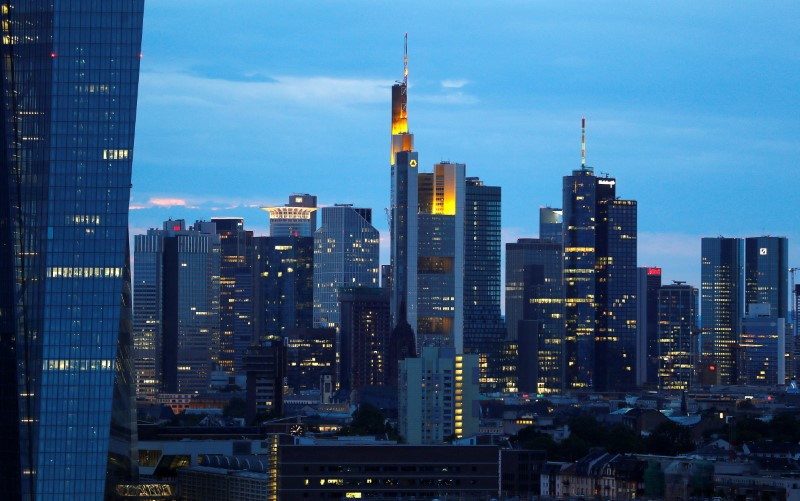By Rachel More
BERLIN (Reuters) -German investor morale clouded over this month, an economic research institute said on Tuesday, as Donald Trump's U.S. election win and the collapse of the government in Berlin unleashed added uncertainty on Germany's already ailing economy.
The ZEW Institute reported a stronger-than-expected decline in its economic sentiment index to 7.4 points from 13.1 points in October, based on a survey of 152 analysts conducted from Nov. 4-11. Analysts polled by Reuters had pointed to a nearly unchanged index reading at 13.0.
Chancellor Olaf Scholz's German government coalition collapsed on Nov. 6, hours after Trump's U.S. election victory was confirmed.
Investors' assessment of the current economic situation also deteriorated to its worst level since the midst of the COVID-19 pandemic in May 2020 - at minus 91.4 points. Economists polled by Reuters had expected a minor improvement.
Europe's largest economy has been skirting recession and must now cope with political upheaval following the collapse of the three-way coalition and the threat of fresh tariffs on German companies from Trump.
Scholz fired his finance minister in a dispute over how to revive the ailing economy, setting the stage for a snap election early next year.
"In the current survey, economic sentiment has declined – and the outcome of the U.S. presidential election is likely to be the main reason for this," said ZEW president Achim Wambach.

"Still, more optimistic voices were heard in the last survey days, expecting economic prospects for Germany to improve with snap elections on the horizon," Wambach added, referring to a "very dynamic development of economic expectations".
The prospect of a new government in Germany after months of political infighting "at least gives hope for a reliable economic policy again," said Alexander Krueger, chief economist at Hauck Aufhaeuser Lampe Privatbank.